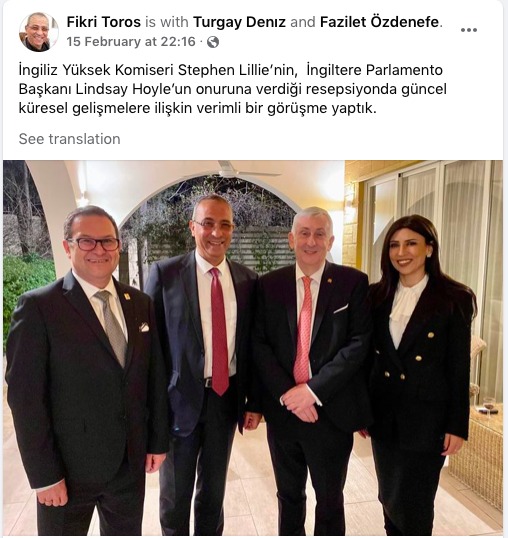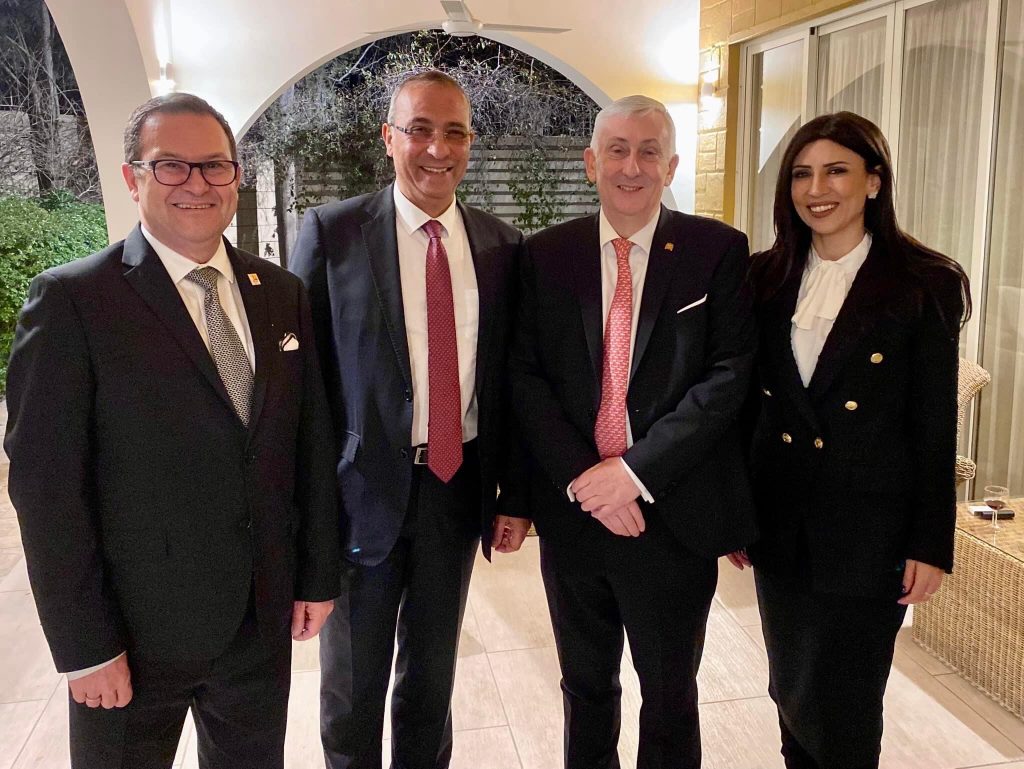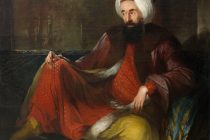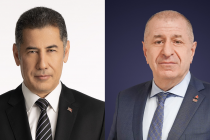An historic visit by the British Speaker of Parliament Sir Lindsay Hoyle to Cyprus has ended in controversy after he rebuffed an invitation to meet with President Ersin Tatar and failed to attend a single event in North Cyprus.
The turn of events came despite a pledge by the Speaker’s Office that a meeting would take place with “members of the Turkish Cypriot community” that would “reflect the UK’s strong and historic bonds with Turkish Cypriots,” after an outcry by British Turkish Cypriots at the weekend.
A statement issued by the TRNC Presidency on Wednesday evening, 16 February, expressed “disappointment” that Sir Lindsay had “only held contacts in South Cyprus”, adding that “ignoring the equal rights of the Turkish Cypriot side is not acceptable.”
The British High Commissioner Stephen Lillie had not informed the TRNC Presidency or Foreign Ministry about Sir Lindsay’s planned visit to the island, despite being involved in the arrangements for several weeks. Officials in North Cyprus only discovered about the trip when details appeared in the Greek Cypriot press on Friday.
President Tatar quickly sought to extend an invitation, but despite extensive efforts to receive Sir Lindsay in North Cyprus, the British Speaker never crossed the Green Line.
Sir Lindsay instead spent three days in South Cyprus participating in multiple events with his Greek Cypriot host Anita Demetriou, the president of the South’s House of Representatives, as well as visiting the British bases, and meeting Colin Stewart, the United Nations Secretary General’s recently appointed Special Representative to Cyprus.
The Commons Speaker met with Greek Cypriot President Nicos Anastasiades, Foreign Minister Ioannis Kasoulides, and a host of Parliamentarians in the South. He also addressed the House plenary at a special session, and took part in a roundtable discussion with university students about parliaments and democracy.
Sir Lindsay’s sole engagement with Turkish Cypriots was at a drinks reception
Yet there was scant “democracy” went it came to the British Speaker making quality time for the co-founders of the Republic of Cyprus.
Sir Lindsay’s sole engagement with Turkish Cypriots came at an evening drinks reception in his honour at the British High Commission (BHC) in South Cyprus.
From what T-VINE could glean, fewer than ten Turkish Cypriots were present at the reception. They included Turgay Deniz, who heads the internationally recognised Turkish Cypriot Chamber of Commerce (KTTO), lawyer Erdem Erginel, businessman Metin Şadi, and two MPs and one former MP from the pro-federation Republican Turkish Party (CTP), Fikri Toros, Fazilet Özdenefe, and Özdil Nami.
Mr Toros posted a photo of himself, Mr Deniz and Ms Özdenefe posing with Sir Lindsay on his Facebook page, with a short message in Turkish:
“We had a productive discussion on current global developments at the reception given by British High Commissioner Stephen Lillie in honour of British Parliament Speaker Lindsay Hoyle.”
A photo opportunity and 5-minute conversation with a handful of Turkish Cypriots, which didn’t include any politicians from the ruling National Unity Party (UBP), is probably not what the UK diaspora and British expats in Cyprus expected following the positive statement issued by the Speaker’s Office, which claimed Sir Lindsay’s meeting would “reflect the UK’s strong and historic bonds with Turkish Cypriots.”

A spokesperson from the Speaker’s Office told T-VINE on Tuesday:
“The visit of the Speaker of the House of Commons, Sir Lindsey Hoyle, to Cyprus, was at the invitation of the Republic of Cyprus’s House of Representatives and arrangements for the visit have been taken forward by the Office of the President of the House, reflecting the longstanding relationship between the two parliaments.”
“During his visit the Speaker will meet members of the Turkish Cypriot community at an event organised by the British High Commissioner, this reflects the UK’s strong and historic bonds with Turkish Cypriots.”
No other details were given about which Turkish Cypriots would meet Sir Lindsay or the nature or location of the meeting.
British Speaker leaves himself ‘open to accusations of discrimination’
The statement had been issued after the British diaspora vocalised the need for the UK – a Guarantor Power in Cyprus – to be even-handed in its approach to both sides on official visits, after Sir Lindsay’s itinerary failed to mention a single meeting or activity with Turkish Cypriots.
Londoner Japha Huse had written to Sir Lindsay stating anything less would leave him “open to accusations of ‘discrimination’”.
It would seem the veteran Labour politician, whose visit to Cyprus was the first by a House of Commons Speaker, didn’t heed the warning.
Sir Lindsay shared post after post of his three day visit with multiple dignitaries on his social media accounts, but not a single one featured a Turkish Cypriot.
Spot the Turkish Cypriot…
It was great to have a very interesting and constructive discussion today on “Parliaments and Democracy: Parliamentary transparency in action” with law, social and political studies students from universities in Cyprus. @AnnitaDemetriou https://t.co/tfE8MXYttj
— Sir Lindsay Hoyle (@CommonsSpeaker) February 16, 2022
Earlier today I had the opportunity to visit the Sovereign Base Areas where I was shown around by the Commander of British Forces Cyprus, Major General Robert Thomson. pic.twitter.com/L1qNkmqIPZ
— Sir Lindsay Hoyle (@CommonsSpeaker) February 16, 2022
This morning I visited Ledra Palace in Cyprus to meet @UKinUNFICYP. I thanked them for the vital role they play in preserving peace and stability. @UN_CYPRUS pic.twitter.com/VAXUFozDd1
— Sir Lindsay Hoyle (@CommonsSpeaker) February 16, 2022
It was an honour for me to address the Special Plenary of the House of Representatives of the Republic of Cyprus. This is the first time since I became Speaker, that I’ve been able to address an overseas Parliament. pic.twitter.com/PWYSRXx3cP
— Sir Lindsay Hoyle (@CommonsSpeaker) February 15, 2022
Was this deliberate exclusion a reflection of “the UK’s strong and historic bonds with Turkish Cypriots” his Office spoke of?
One of the first to react was the Council of Turkish Cypriot Associations UK (CTCA), the umbrella body for the UK’s quarter of a million Turkish Cypriot community.
In a post on its Facebook group, CTCA said, “British Turkish Cypriots are furious as time after time [the] FO [Foreign Office] Officials only visit South [Cyprus]” accusing them of “displaying open racism to Turkish Cypriots.”
“We are absolutely shocked that the Speaker of the Parliament Sir Lindsey [sic] Hoyle refused President Ersin Tatar’s invitation to meet with the officials in the North,” continued the statement.
The CTCA ended with a “demand” for “equal sovereignty and recognition” of the Turkish Republic of North Cyprus and that “Greek Cypriots do not represent us and never will.”
Former CTCA Secretary Sonya Karafistan described the Chorley MP’s actions “discourteous, undiplomatic and shortsighted” in a tweet on Wednesday evening.
@CommonsSpeaker how very discourteous, undiplomatic and shortsighted. Was a great fan of yours. Am saddened & disappointed. Had you down as a big humanitarian & expected better of you.
— Sonya Karafistan (@StealthMother) February 16, 2022
The TRNC Presidency was also unequivocal in demanding the UK “treat both sides equally”. Its statement asserted that by “Not acknowledging the equal voice/opportunity and natural/inherent sovereign equality of the two sides”, the UK “ only serves to perpetuate the status quo”.
It questioned the sincerity of the UK “in its statements about advocating for a fair, realistic and sustainable settlement in Cyprus” and urged Britain to “adopt an approach that observes the principle of absolute equality of the two sides in its dialogue and contacts.”
Cyprus divided for 58 years
Cyprus has been politically divided for the past 58 years. The island gained its independence from Britain in 1960, but the power-sharing government only survived three years when Greek Cypriots staged a brutal coup and seized control in December 1963.
Trying to hold on to their political equality, Turkish Cypriots formed their own administration, whilst trying to protect its vulnerable population, many of whom were forced into tiny enclaves.
A Greek invasion and a second coup in July 1974 prompted Turkey to intervene to save Turkish Cypriots from total annihilation. The Turkish army split the island into a Turkish North and Greek South, which in turn finally brought an end to the decade-long bloodshed.
The Turkish Republic of North Cyprus was declared in November 1983 after twenty years of failed talks to reunite the island. While the TRNC enjoys good relations with several countries around the world, the only country to formally recognise it is Turkey.
Despite being a Guarantor Power that is obliged to act to prevent one side dominating the other, the British government chose in 1964 to recognise Greek Cypriots as the “government of Cyprus”, while down-grading the Turkish Cypriots to that of a “community”. The UK has continued to pursue a policy of direct and indirect discrimination against Turkish Cypriots ever since.
Main photo, top, from left to right: Turgay Deniz, Fikri Toros, Sir Lindsay Hoyle, and Fazilet Özdenefe, at a reception in honour of Sir Lindsay at the British High Commission in South Cyprus. Photo © Facebook / Fikri Toros




